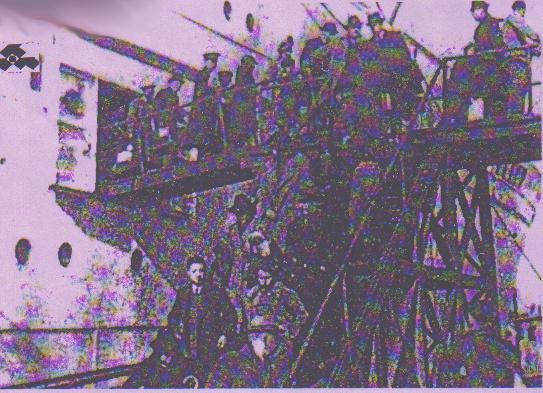
The Jews in China.
Archaelogical evidence suggests that Jews were in China as early as the 8th Century, having arrived from Persia along the Silk Road. In 1163 the Emperor ordered the Jews to live in Kaifeng, where they built the first Chinese synagogue. Marco Polo recorded that Kublai Khan celebrated the festivals of the Muslims, Christians and Jews, indicating that there were a significant number of Jews in China in the 13th Century.
A Ming Emperor conferred on the Jews seven surnames - Ai, Lao, Jin, Li, Shi, Zhang and Zhao. To this day Chinese Jews will only have one of these seven names. Christian missionaries also recorded meetings with Chinese Jews. The Vatican holds letters from Jesuits in the 18th Century describing the daily life and religious practices of Jews in Kaifeng, and drawings of their synagogue.
Westerners lost touch with Kaifeng Jews in the mid-1700s. It was not until 1900 that an effort was made to re-establish contact.
>From the mid-19th Century Shanghai was the focus of Jewish immigration to China. By the end of the 1930s, there was a community of close to 30,000 Jews in Shanghai.
Jews arrived in Shanghai in the 1850s from British colonies in the Middle East, India and Hong Kong. They came to Shanghai when China opened the "Treaty Ports". When Jewish refugees from Nazi Europe began arriving in Shanghai in the late 1930s, they provided financial assistance and helped organize additional support through American Jewish organizations.
The next group of Jews to arrive in Shanghai came from Russia following persecution and the Russian Revolution at the beginning of the 20th Century. They arrived with other White Russian refugees and travelled to Shanghai via Siberia and Harbin.
The largest group of Jews to settle in Shanghai were regugees from Nazi Europe. In the years before World War II, 25,000 Jews arrived in Shanghai to escape persecution [ many thousands of visas to Shanghai were issued by Dr.Ho Feng-Shan, Chinese Consul General in Vienna ]. The city accepted more Jewish refugees than Canada, Australia, New Zealand, South Africa and India combined. The refugees made a great and lasting contribution to cultural life in Shanghai. Between 1939 and 1946 there were more than 50 newspapers and magazines in German, Polish and Yiddish.

Jews arriving in Shanghai
After WWII, many of the Jews began to leave Shanghai. A large number emigrated to Israel, while others went to Australia, South Africa, the United States and Canada. Many had not wanted to take up citizenship.
Source:
Extracted from pamphlets distributed & displayed at The Chinese Cultural Centre, Vancouver. Dec 1999.